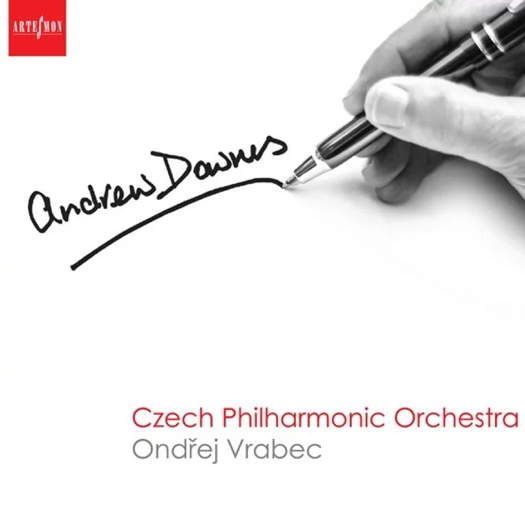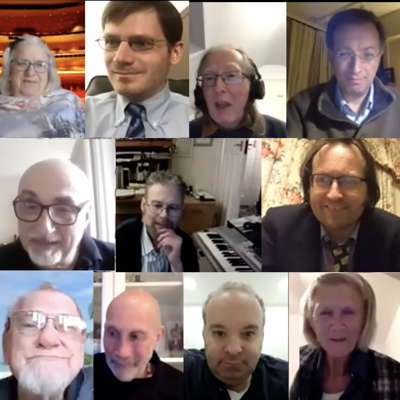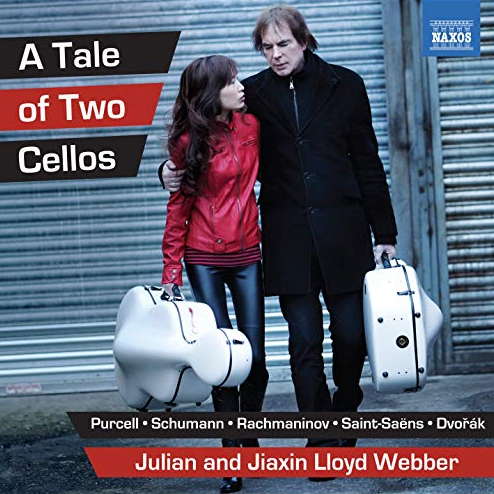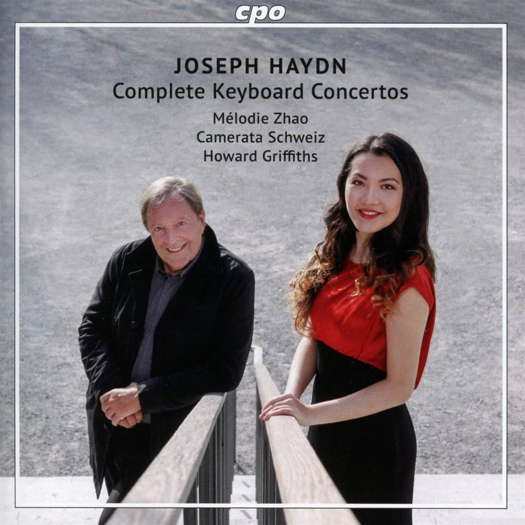 SPONSORED: CD Spotlight. On Buoyant Form - Orchestral music by Andrew Downes, heard by Roderic Dunnett.
SPONSORED: CD Spotlight. On Buoyant Form - Orchestral music by Andrew Downes, heard by Roderic Dunnett.
All sponsored features >>
 VIDEO PODCAST: James Ross and Eric Fraad discuss Streaming, Downloads and CDs with Maria Nockin, Mary Mogil, David Arditti, Gerald Fenech, John Daleiden, John Dante Prevedini, Lucas Ball and Stephen Francis Vasta.
VIDEO PODCAST: James Ross and Eric Fraad discuss Streaming, Downloads and CDs with Maria Nockin, Mary Mogil, David Arditti, Gerald Fenech, John Daleiden, John Dante Prevedini, Lucas Ball and Stephen Francis Vasta.
 SPONSORED: CD Spotlight. Uncommon Piquancy - Music for two cellos, heard by Howard Smith.
SPONSORED: CD Spotlight. Uncommon Piquancy - Music for two cellos, heard by Howard Smith.
All sponsored features >>

Continuous Excitement
Keyboard concertos by Franz Joseph Haydn, recommended by GERALD FENECH
'Mélodie Zhao's interpretations are full of warmth and colour, and her phrasing, even in the quicker passages, is consistently arresting.'
One of the most prolific and prominent composers of the classical period, Franz Joseph Haydn, was born on 31 March 1732 in Rohrau, Austria. The son of a wheelwright and a landowner's cook, Haydn had such a fine voice that at the age of five he entered the Choir School of St Stephen's Cathedral in Vienna. His heavenly treble tones lasted until he was sixteen, and then suddenly he lost his voice, a fact noticed by the Habsburg Empress Maria Theresa who uttered the famous phrase: 'That boy does not sing, he crows'. Haydn left the choir in memorable circumstances - cutting off the pigtail of one of his fellow choirboys - and was publicly caned.
By the 1770s Haydn's music had become more distinctive and boldly individual, inspired by a form of extreme emotionalism known as Sturm und Drang (storm and stress). The composer's reputation spread rapidly throughout his native Austria, and commissions flooded in, even from abroad. In 1790 Prince Nicholas Esterhazy died, and the musically indifferent Anton became the new Crown Prince. This was the chance for Haydn to break free from the shackles of Nicholas and the Esterhazys, who had kept him in employment since 1762, almost continually locked up in their large estate, working tirelessly from morning till night. Soon after Haydn moved to Vienna he received an invitation from Johann Peter Salomon, the great German-born violinist and impresario, to visit England. The composer accepted and his two year stay in this country was an overwhelming success. Indeed, such was the enthusiasm for his works and the man himself that, wherever he went he was simply adored.
Prince Anton Esterhazy died in 1795 and his successor, Nicholas II, requested Haydn's return to Esterhaza. A lover of church music, Nicholas set Haydn the task of composing a mass every year, to which the composer obliged with some of the greatest sacred works composed until then. In 1804 Haydn retired from Esterhaza, and illness effectively prevented him from any further composition. During May 1809 Napoleon reached Vienna, but Haydn stayed there, guarded respectfully by two of the invader's sentries. Such was the esteem that the man commanded. On 31 May 1809 Haydn died peacefully in his sleep aged seventy-seven, leaving for posterity, among a myriad of other compositions, 107 symphonies, eighty-three string quartets, forty-five piano trios, sixty-two piano sonatas, fourteen masses and twenty-six operas.
A central characteristic of Haydn's music is the development of larger structures out of very short and simple musical motifs, often derived from standard accompanying figures. The music is often very formally concentrated, and the important musical episodes of a movement can unfold rather quickly. Haydn's work was of paramount importance to the development of the popular 'sonata form', and he was particularly fond of the so-called monothematic exposition, in which the music that establishes the dominant key is similar to the opening theme. Haydn's formal inventiveness also led him to integrate the 'fugue' into the classical style, and to enrich the 'rondo' with more cohesive tonal logic.
Perhaps more than any other composer, Haydn's music is famous for its exquisite humour. Indeed, he always composed to please and delight his audience, and make them feel that inner joy that was instilled in his kindred spirit. The fast movements also tend to be rhythmically propulsive, and often impact a great sense of energy, especially in the finales.
All the concertos in this two CD set are endowed with all of Haydn's imaginative strokes of compositional mastery mentioned above, but, with a few exceptions, most of these works do not command the popularity they deserve. True, they are rather slight, almost salon pieces, when compared to the Mozart concertos and all that came after, particularly Beethoven, Brahms and the rest, but they do contain some lovely music with plenty of energy and surprises in the phrasing, and the outer movements are, by far and large, miniature gems of orchestration brimming with light-hearted fun and joie de vivre.
Composed over a span of twenty-six years (1756-1782), all the concertos are in the standard three movement mould, but there are, what you might call, two tiny exceptions. The sixth is a double concerto for piano and violin as the solo instruments, while the tenth is a ten-minute concertino which probably was composed for some evening entertainment. Still, this is only speculation, as we still cannot be sure whether Haydn really wrote this short piece.
Listen — Haydn: Allegro (Concertino in C, Hob XVIII:10)
(CD1 track 10, 0:01-0:59) ℗ 2021 cpo :
At this point, we must keep in mind the fact that Von Hoboken, the man responsible for compiling the composer's list of complete works, did include at times spurious compositions that he attributed to Haydn. This concertino is a case in point. Anyway, whatever the case, just enjoy the music.
Mélodie Zhao's interpretations are full of warmth and colour, and her phrasing, even in the quicker passages, is consistently arresting. The adagios have a certain nobility and gravitas in Zhao's hands and, although they do not approach the richness of a Mozart or a Beethoven, they still leave a moving impression. The outer movements are full of charm and wit, and Zhao delivers some really breathless virtuosity that leaves in the listener an air of continuous excitement.
Listen — Haydn: Presto (Concerto in F Hob XVIII:3)
(CD1 track 3, 2:53-3:53) ℗ 2021 cpo :
Howard Griffiths and his Camerata Schweiz back the pianist with some wonderful accompaniments, while David Nebel's violin playing in the double Concerto (No 6) is impeccable throughout.
Not the greatest music in the world, but very well annotated and recorded. Recommended unhesitatingly.
Copyright © 8 March 2021
Gerald Fenech,
Gzira, Malta

CD INFORMATION - JOSEPH HAYDN: COMPLETE PIANO CONCERTOS


